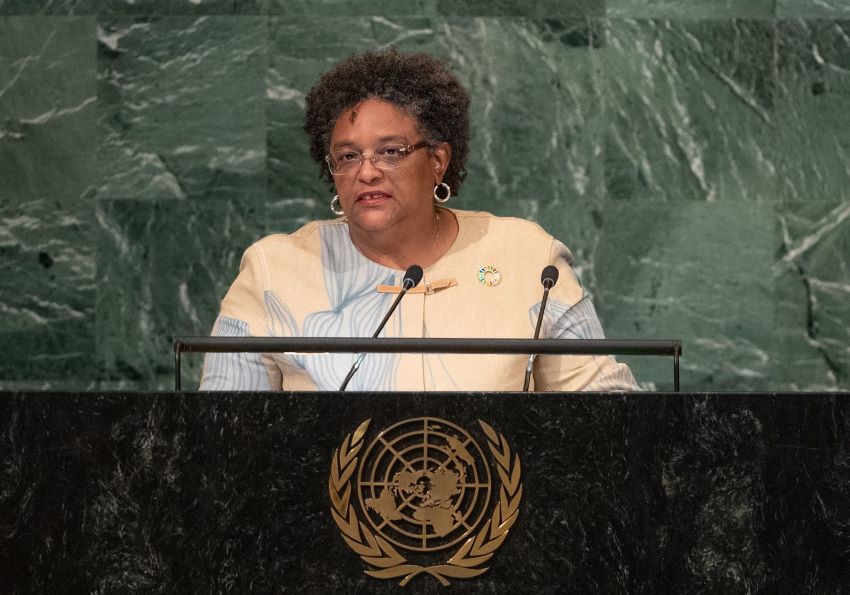
Prime Minister of Barbados, Mia Amor Mottley, in delivering the island’s national statement last week at the United Nations General Assembly 77, called for contributions from multinational companies to address issues resulting from the climate crisis.
While noting that all nations know about what it is to be on the front line of the climate crisis, Prime Minister Mottley stressed that climate change would adversely affect small island developing states because these countries were on the frontline.
“Today, we speak of all countries and this hot, hot summer with wildfires in California to the heat waves in North America and Europe, to waterways in Europe being prohibited from the ability of vessels to traverse it. To floods in China and above all else, the apocalyptic floods in Pakistan, for which our heart goes out to the people of that country. It simply cannot continue,” she stated.
Ms. Mottley proffered that the climate crisis was one that mankind had significantly contributed to and stressed: “Any attempt to deny that the climate crisis has manmade origins is an attempt to delude ourselves and to admit that we want to be accomplices in the continued death and loss and damage that ensues to the people who are the victims of it. Our people demand better of us.”
The island’s Prime Minister added that people demanded better of their governments and proposed that there could be a solution.
Elaborating, she stated: “If multinational companies have contributed to the global public risks, or benefit from the solutions for global public goods, then they ought to contribute to their resolution through a percentage, a small percentage of their profits, funding the needs of countries whether it is the issue of climate, stability and resilience and adaptation, whether it is for the protection of biodiversity, both on land and in our waters, whether it is for the protection of public health, against the next pandemic, the slow motion pandemic of antimicrobial resistance or others that we have not even contemplated, or the provision of education for each of our citizens.”
Ms. Mottley also addressed the issue of fairness in relation to the African Continent and its exclusion from certain committees of governance.
“We also believe that the recognition of the G-7 countries and the G-20 countries as the informal subcommittee of governance of this world, if it is to be fair, It must recognise that no longer can we accept that persons call year after year for the inclusion of the people of Africa and African descent to be included in the G-7 and the G-20, for how can a world have at its core a sub-committee that excludes more than 1.5 billion people of the world and expect it to reflect fairness and transparency in its decision-making?”
“We ask that the determination be made by those countries who must understand that if we are to move from possibilities to realities, we must embrace a transparent framework that allows our people, who are losing faith in their institutions and the governance of this world, to understand the fairness means something.”
